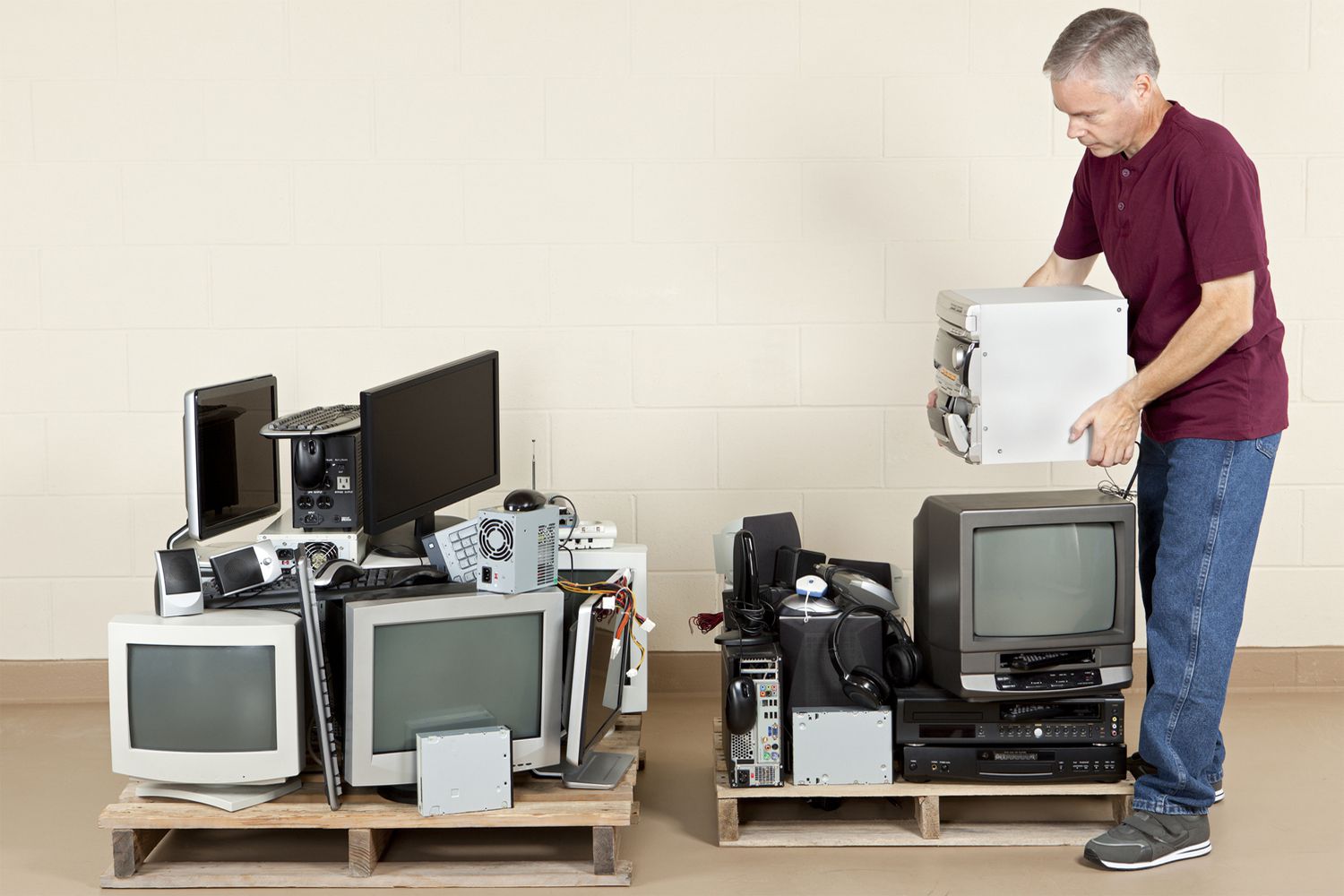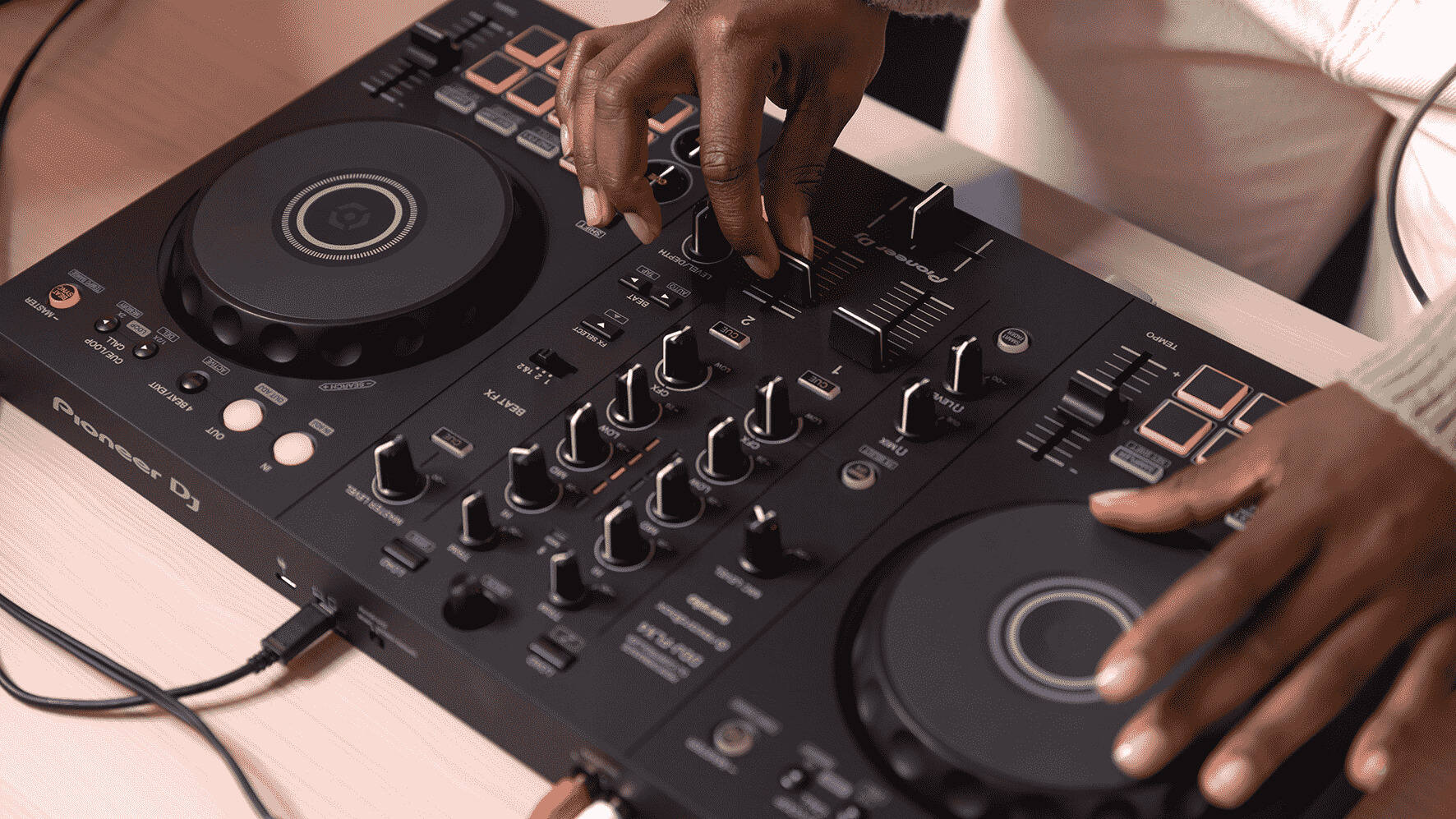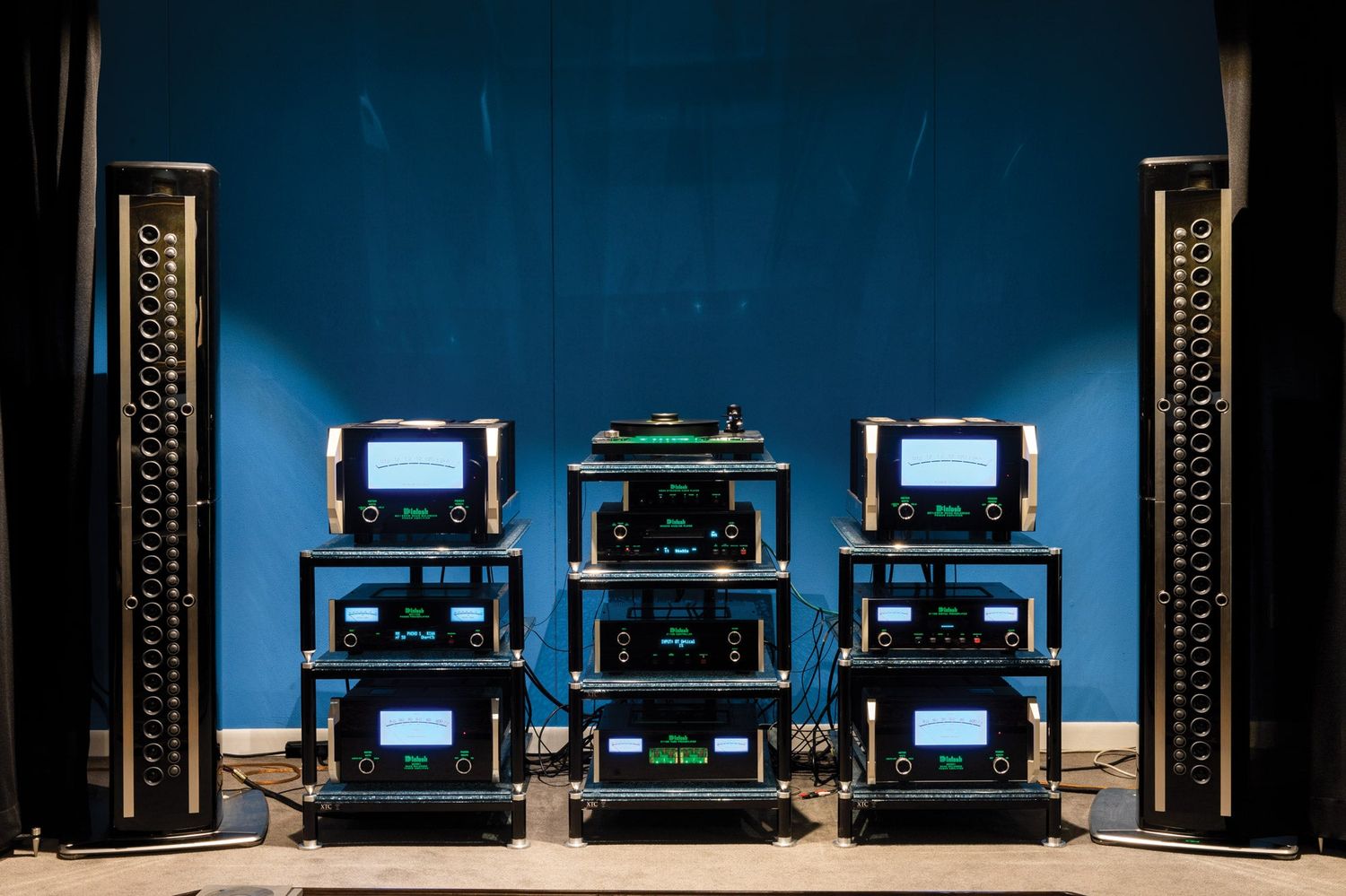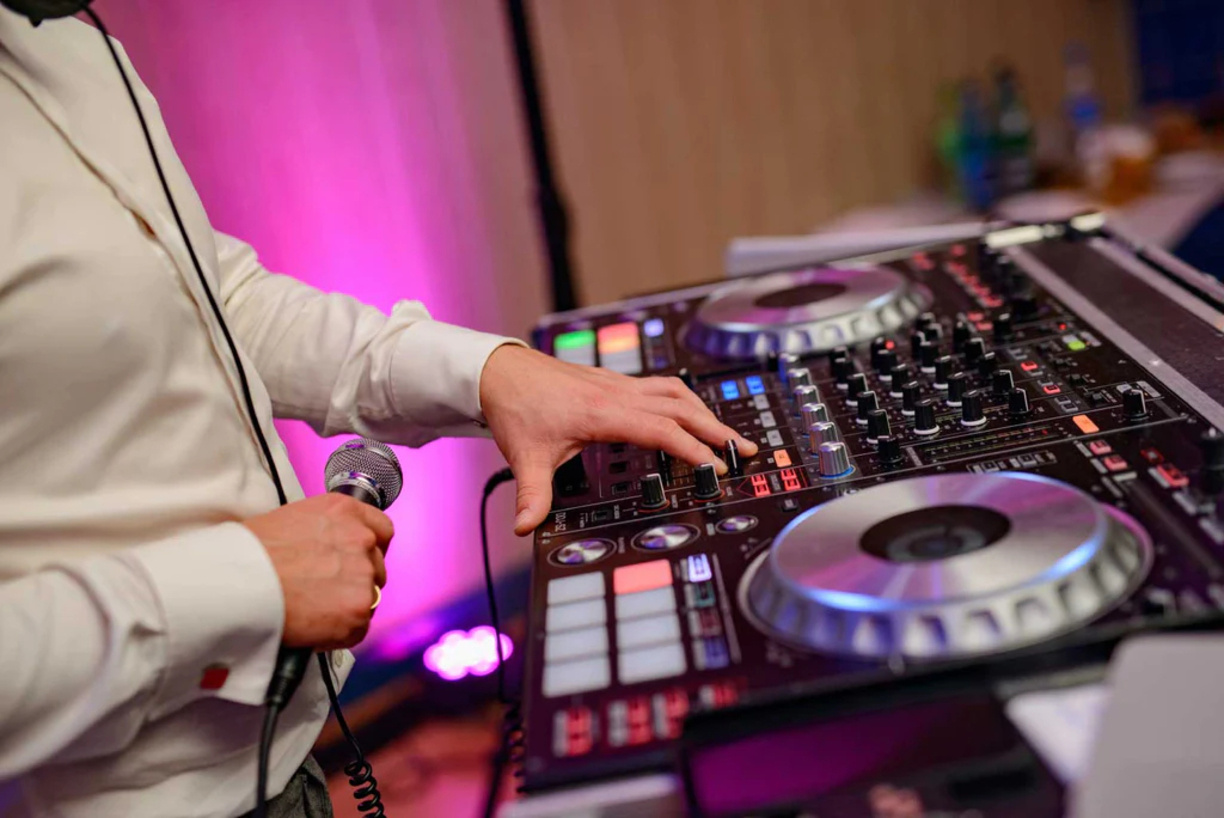Home>Production & Technology>Stereo>How To Dispose Of Old Stereo Equipment


Stereo
How To Dispose Of Old Stereo Equipment
Published: November 25, 2023
Learn how to properly dispose of your old stereo equipment, including speakers, amplifiers, and receivers. Follow our step-by-step guide to ensure you're doing it safely and responsibly.
(Many of the links in this article redirect to a specific reviewed product. Your purchase of these products through affiliate links helps to generate commission for AudioLover.com, at no extra cost. Learn more)
Table of Contents
- Introduction
- Assessing the Condition of Your Old Stereo Equipment
- Researching Local Laws and Regulations
- Donating Your Old Stereo Equipment
- Selling Your Old Stereo Equipment
- Recycling Your Old Stereo Equipment
- Disposing of Non-Recyclable Stereo Equipment
- Tips for Safely Disposing of Old Stereo Equipment
- Conclusion
Introduction
So, you have decided to finally upgrade your stereo equipment. Congratulations! But now you face the dilemma of what to do with your old stereo equipment. It’s not something you can simply throw in the trash, as it contains valuable components and materials that need to be properly disposed of. But don’t worry, we’re here to help.
In this article, we will guide you through the process of disposing of your old stereo equipment responsibly. We will explore various options, including donating, selling, recycling, and disposing of non-recyclable equipment. By the end, you will have all the information you need to make an informed decision and ensure that your old stereo equipment gets a proper farewell.
Before we delve into the details, it’s important to note that the disposal methods discussed in this article are intended for personal use stereo equipment. If you are a business or organization looking to dispose of commercial-grade stereo equipment, it is recommended to consult with professional e-waste disposal services that specialize in handling such equipment.
Now, let’s get started on understanding how to assess the condition of your old stereo equipment and determine the best course of action for disposing of it.
Assessing the Condition of Your Old Stereo Equipment
Before you decide how to dispose of your old stereo equipment, it’s important to assess its condition. This will help you determine whether it has any potential value, whether it can be donated or sold, and how to handle its disposal.
The first step in assessing the condition of your old stereo equipment is to check if it is still working. Power it on and see if all the components, such as the speakers, amplifier, and CD player, are functioning properly. Test different inputs and outputs to ensure that all the connections are in working order. If you find any issues, take note of them as they may impact its value or determine the best course of action.
Next, inspect the physical condition of the equipment. Look for any scratches, dents, or other cosmetic damages. While minor imperfections may not affect its functionality, they can influence its appeal and value when selling or donating.
Consider the age of the equipment. Older models may have sentimental value, but they may also be outdated and lacking in features compared to newer models. Take into account the compatibility with modern audio formats and connectivity options. If your equipment is significantly outdated, it may be more challenging to find a buyer or a donation center that will accept it.
Research the market value of similar used stereo equipment. Check online marketplaces and auction sites to get an idea of how much similar items are being sold for. This will help you determine a fair price if you decide to sell your equipment.
Lastly, consider the availability of spare parts and the potential for repair. Some stereo equipment can be easily fixed if a specific component fails. If your equipment is repairable and in demand, it may have more value.
Once you have assessed the condition of your old stereo equipment, you can move forward with the next steps, such as researching local laws and regulations and exploring donation and selling options. We will discuss these in the following sections.
Researching Local Laws and Regulations
When it comes to disposing of electronic equipment like stereo equipment, it’s crucial to understand and comply with local laws and regulations. Different jurisdictions have specific rules in place to ensure the proper handling and disposal of electronic waste, also known as e-waste.
Start by researching the e-waste regulations in your area. Determine whether there are any specific guidelines or requirements for disposing of old stereo equipment. Some regions may have mandatory recycling programs or require certain certifications for electronic waste disposal. It’s essential to be aware of these regulations to avoid any legal consequences or environmental harm.
Look for local recycling centers or e-waste collection facilities that accept stereo equipment. These centers are equipped to handle electronic waste properly, ensuring that valuable materials are recovered and hazardous substances are disposed of safely. Check if they accept both working and non-working equipment, as some centers may only take functional items. Make note of any fees or requirements for dropping off your stereo equipment, such as the need to remove batteries or personal data.
Additionally, research if there are any specific restrictions or guidelines for disposing of hazardous components commonly found in stereo equipment, such as batteries or mercury-containing switches. Some locations may have separate disposal procedures for these items to prevent environmental contamination.
Take the time to understand any obligations or responsibilities you may have as the owner of the stereo equipment. In some cases, you may be required to prepare the equipment for recycling or provide proof of its disposal. Familiarize yourself with these requirements to ensure compliance.
It’s worth mentioning that in some communities or regions, there may be special e-waste collection events or programs that provide an opportunity to dispose of electronic equipment. These events often have designated drop-off locations and dates for safe disposal. Stay updated on any upcoming events in your area to take advantage of these opportunities.
By researching the local laws and regulations regarding the disposal of stereo equipment, you can ensure that you are handling it in an environmentally responsible and legally compliant manner. This knowledge will guide you in making informed decisions about donation, selling, or recycling your old stereo equipment, which we will explore in the next sections.
Donating Your Old Stereo Equipment
Donating your old stereo equipment is a great way to give it a second life and benefit someone in need. Before you donate, ensure that your equipment is in good working condition and meets the requirements of the donation center or organization.
Start by researching local charities, community centers, schools, or nonprofit organizations that accept electronic donations. Look for organizations that specifically mention accepting stereo equipment or electronic devices. Reach out to them and inquire about their donation process, including any criteria or restrictions they may have.
Some donation centers have specific guidelines for accepting stereo equipment, such as only accepting certain brands or models, or requiring a specific age range. Make sure your equipment meets any requirements specified by the organization.
Prior to donating, take the time to clean and prepare your stereo equipment. Dust it off, wipe it down, and ensure that all cables and accessories are included. If applicable, remove any personal data from the equipment to protect your privacy.
When donating your stereo equipment, consider including any additional items that could enhance its value, such as user manuals, remote controls, or cables. By providing a complete package, you increase the chances of your donation being accepted and used effectively.
Once you have selected a donation center or organization, arrange a drop-off or pickup of your equipment. Some centers may have designated drop-off locations, while others may offer a pickup service. Follow their instructions and schedule a convenient time to ensure a smooth donation process.
Keep in mind that donations of electronic equipment may be tax-deductible in some jurisdictions, so be sure to inquire about a receipt or documentation for tax purposes.
By donating your old stereo equipment, you not only extend its useful life but also potentially bring joy to someone who may not have access to such technology. It’s a wonderful way to give back to your community and make a positive impact. However, if your equipment is not suitable for donation or if you prefer to explore other options, selling your old stereo equipment may be a viable alternative, which we will discuss in the next section.
Selling Your Old Stereo Equipment
If your old stereo equipment is still in good working condition and you’re looking to recoup some of its value, selling it can be a practical choice. Here are some steps to follow when selling your old stereo equipment:
1. Determine the value: Research the market value of similar used stereo equipment to establish a fair price for your items. Consider factors such as brand, age, condition, and any unique features or accessories that may increase its value.
2. Choose the selling platform: Decide where you want to sell your stereo equipment. You have various options, including online marketplaces like eBay, Craigslist, or specialized audio equipment forums. Each platform has its own features, audience, and selling processes, so choose the one that best suits your needs.
3. Create an appealing listing: Take high-quality photos of your stereo equipment from different angles and highlight its key features. Write a clear and detailed description, including specifications, functionality, and any additional information that potential buyers might find useful. Be honest about any cosmetic or functional issues.
4. Set a competitive price: Use your research on the market value to set a reasonable selling price. Consider the condition of your equipment and any unique features it offers. If you want a quick sale, you might opt for a slightly lower price, but if you are willing to wait for the right buyer, you can set a higher price.
5. Communicate and negotiate with potential buyers: Respond promptly to inquiries from interested buyers and provide any additional information they request. Be open to negotiation, especially if you’re trying to sell your equipment quickly. Make sure to communicate clearly and honestly to avoid any misunderstandings.
6. Arrange a secure and convenient transaction: Once you’ve agreed on a price with a buyer, decide on the payment method and arrange for a secure transaction. Cash on delivery, PayPal, or bank transfers are common options. If you’re shipping the equipment, ensure it’s packed securely to prevent any damage during transit.
7. Complete the sale and follow up: Once the transaction is complete and you’ve received payment, make sure to follow up with the buyer to ensure they’re satisfied with the purchase. Leave feedback if applicable to help build your reputation as a seller.
Selling your old stereo equipment is a great way to not only make some extra money but also pass on your beloved gear to someone who will appreciate it. However, if your equipment is outdated, non-functional, or you simply prefer not to sell it, recycling your old stereo equipment may be the most environmentally friendly option, which we will explore in the next section.
Recycling Your Old Stereo Equipment
Recycling your old stereo equipment is a responsible way to dispose of it and ensure that valuable materials are recovered and reused. Recycling helps reduce the environmental impact of electronic waste and prevents harmful substances from ending up in landfills. Here’s how you can recycle your old stereo equipment:
1. Find a certified recycling facility: Look for local recycling centers or electronic waste collection facilities that accept stereo equipment. Make sure the facility is certified and follows proper recycling practices. You can search online or contact your local municipality for recommendations.
2. Check the accepted items: Confirm that the recycling facility accepts the specific types of stereo equipment you want to recycle. Some facilities may only accept certain components or have restrictions on the size or condition of the equipment.
3. Prepare the equipment: Prior to recycling, remove any personal data and important documents from the equipment. Wipe any stored information and perform a factory reset if applicable. Remove batteries and dispose of them separately, following the designated battery recycling process in your area.
4. Drop off or arrange a pickup: Once your stereo equipment is ready for recycling, take it to the designated drop-off location at the recycling center. Some facilities may offer a pickup service for larger items. Follow their instructions and ensure that your equipment is securely packaged for transport.
5. Ask about documentation: Inquire about any documentation or certificates you may receive to confirm that your stereo equipment has been properly recycled. In some cases, you may need this documentation for record-keeping purposes or to comply with local regulations.
6. Recycle responsibly: Choose recycling facilities that prioritize environmentally friendly practices. They should employ methods that minimize waste and maximize the recovery of valuable materials from the stereo equipment. This ensures that the recycling process is as sustainable as possible.
By recycling your old stereo equipment, you contribute to the conservation of resources and the reduction of electronic waste. However, it’s important to note that some components of stereo equipment may not be recyclable. In the next section, we will discuss how to dispose of non-recyclable stereo equipment safely.
Disposing of Non-Recyclable Stereo Equipment
While most of your old stereo equipment can be recycled, there may be certain components or materials that are not recyclable. These non-recyclable items must be disposed of properly to minimize their environmental impact. Here’s how you can handle the disposal of non-recyclable stereo equipment:
1. Identify non-recyclable components: Determine which parts or materials of your stereo equipment are not recyclable. This can include items like batteries, certain plastics, or hazardous substances. It’s essential to be aware of these items to ensure they are disposed of correctly.
2. Check local disposal guidelines: Research the local laws and regulations regarding the disposal of non-recyclable items. Some areas have specific guidelines for the disposal of hazardous substances or electronic waste. Follow these guidelines to ensure compliance and prevent environmental harm.
3. Battery disposal: If your stereo equipment contains batteries, make sure to dispose of them separately. Many communities have battery recycling programs in place to handle the safe disposal of batteries. Check with your local municipality or recycling centers for designated drop-off locations or recycling options.
4. Hazardous material disposal: If your stereo equipment includes hazardous substances like mercury switches or other toxic components, it’s crucial to handle their disposal properly. Contact specialized e-waste disposal services or your local waste management facility for guidance on how to safely dispose of these materials.
5. Professional disposal services: In some cases, it may be necessary to enlist the help of professional e-waste disposal services. These companies specialize in the proper handling and disposal of non-recyclable electronic waste. They have the knowledge and equipment to safely manage hazardous materials and ensure compliance with regulations.
Remember, improper disposal of non-recyclable stereo equipment can have adverse effects on the environment and human health. It’s essential to follow the proper guidelines and procedures to minimize any potential harm.
Now that you have a good understanding of how to dispose of your old stereo equipment responsibly, let’s review some tips for safely carrying out the disposal process in the next section.
Tips for Safely Disposing of Old Stereo Equipment
When it comes to disposing of your old stereo equipment, it’s important to prioritize safety and ensure that the process is carried out responsibly. Here are some tips to help you safely dispose of your old stereo equipment:
1. Disconnect from power: Before handling or disposing of any stereo equipment, always ensure that it is disconnected from the power source. Unplug all cables and power cords to avoid the risk of electric shock.
2. Follow proper handling procedures: When moving or transporting your stereo equipment, handle it with care to prevent any damage or injury. Make use of padding or protective materials to cushion delicate components and minimize the risk of impact.
3. Securely pack for transport: Whether you’re donating, selling, or recycling your old stereo equipment, ensure that it is properly packaged for transport. Use suitable packing materials to protect the equipment from damage during transit.
4. Remove personal data: If your stereo equipment has storage capabilities, be sure to remove any personal data or sensitive information before donating, selling, or recycling. Perform a factory reset or use data wiping software to ensure your privacy is protected.
5. Check for hazardous materials: Some stereo equipment, such as older models or specific components, may contain hazardous materials like mercury or lead. It’s essential to identify and handle these materials following the guidelines provided by local regulations or professional disposal services.
6. Dispose of batteries separately: If your stereo equipment uses batteries, dispose of them separately following appropriate battery recycling procedures. Many communities have designated drop-off locations or recycling programs for battery disposal.
7. Follow local laws and regulations: Research the local laws and regulations regarding the disposal of electronic waste and follow them diligently. Understanding the specific requirements in your area will help ensure that you dispose of your stereo equipment in a legally compliant manner.
8. Consider repair or refurbishment: Before disposing of your old stereo equipment, explore the possibility of repair or refurbishment. Sometimes minor issues can be fixed, allowing the equipment to continue being used or extend its lifespan.
By following these tips, you can ensure that the disposal process is carried out safely and responsibly. Remember, the proper disposal of your old stereo equipment not only protects the environment but also contributes to the sustainable management of electronic waste.
With these tips in mind, you are now equipped with the knowledge and guidelines necessary to responsibly dispose of your old stereo equipment. Whether you choose to donate, sell, recycle, or dispose of it, you can make an informed decision and contribute to a greener future.
Conclusion
Disposing of your old stereo equipment requires careful consideration and responsible action to ensure both the environment and personal information are protected. By assessing the condition of your equipment, researching local laws and regulations, and exploring donation, selling, and recycling options, you can choose the best method for your specific situation.
Donating your old stereo equipment allows you to give it a second life and benefit someone in need. Ensure that your equipment is in good working condition and meets the requirements of the donation center or organization. Selling your equipment is a practical choice if it is still in good working condition and you want to recoup some of its value. Research the market value, choose the right selling platform, and create an appealing listing to attract potential buyers.
Recycling your old stereo equipment is an environmentally responsible choice to ensure proper handling of valuable materials. Find certified recycling facilities, prepare the equipment for recycling, and drop it off or arrange for pickup following their guidelines. If some components are non-recyclable, make sure to dispose of them properly, following local disposal guidelines and utilizing professional e-waste disposal services if needed.
Throughout the disposal process, prioritize safety by disconnecting from power, packaging the equipment securely, removing personal data, and handling any hazardous materials with care. By following local laws and regulations, you can ensure compliance and contribute to the proper management of electronic waste.
In summary, with proper planning and understanding of the options available, you can responsibly dispose of your old stereo equipment. Whether you choose to donate, sell, recycle, or dispose of it, remember that each choice has its own impact on the environment and community. By making informed decisions and following the tips provided, you can contribute to a more sustainable future and make a positive difference.











